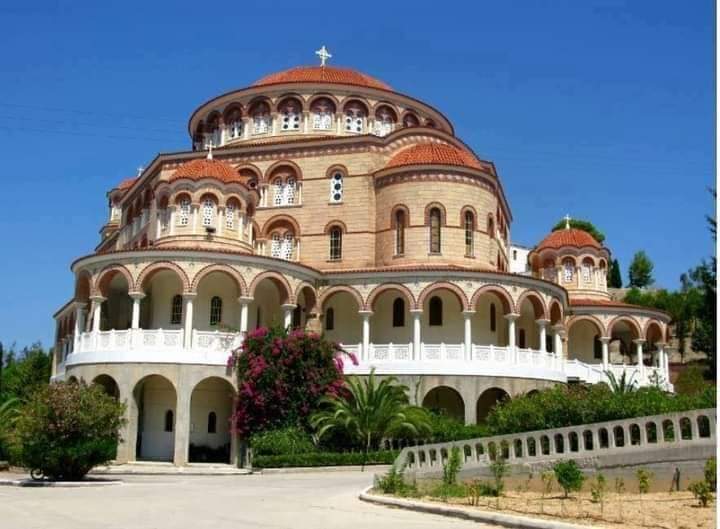The Greek island of Aegina, nestled in the Saronic Gulf, is home to a spiritual sanctuary that draws thousands of pilgrims each year: the Monastery of Agios Nektarios. Dedicated to the Holy Trinity (Agia Triada), this sprawling complex is a testament to the life and enduring legacy of Saint Nektarios (1846-1920), a revered figure in the Greek Orthodox Church.
Overlooking a newer, grander church also dedicated to the saint, the original monastery offers a glimpse into the humble beginnings of this spiritual oasis. Founded by then Bishop Nektarios between 1904 and 1910 at the behest of a group of nuns, the monastery became a focal point for his multifaceted ministry. Though he didn't reside there permanently until 1908, his guiding hand shaped its development from its inception. For the remaining 13 years of his life, Agios Nektarios lived and worked within these walls, ultimately finding his final resting place beneath a plane tree near the original monastery church. Today, pilgrims can visit two small chapels within the monastery that house his tomb and holy relics, as well as his preserved cell, a poignant reminder of his simple life.
The newer church adjacent to the monastery stands as a magnificent tribute to the saint, with its towering twin bell towers and distinctive red-bowed windows. A short climb leads to the older Church of the Holy Trinity, completing the architectural triad that comprises the complex.
Agios Nektarios was more than just a spiritual leader; he was a polymath, excelling as a writer, theologian, philosopher, moralist, educator, poet, ascetic, and mystic. His profound empathy and reputed ability to heal, particularly in cases of cancer and other illnesses, drew people from far and wide seeking solace and miraculous intervention. Stories abound of his healing powers, including the exorcism of a demon-possessed man and a prayer that brought desperately needed rain to the drought-stricken island. These events, seen as divine interventions, solidified his reputation for saintliness among the local population.
Beyond the miracles, Agios Nektarios was deeply admired for his humility and tireless work ethic. He believed in the dignity of all labor, working alongside others and never shying away from even the most menial tasks. He continued his prolific writing, publishing, preaching, and spiritual counseling at the monastery, offering guidance to those seeking his wisdom and insight.
Each year on November 9th, the island of Aegina commemorates the feast day of Agios Nektarios. The celebrations begin with evening services on the eve of his feast day, culminating in a grand procession the following morning. During this procession, the saint's relics are carried through the streets of Aegina Town, a moving spectacle that draws both locals and visitors in a shared expression of faith and reverence. The Monastery of Agios Nektarios remains a powerful testament to his enduring legacy, a place where faith, hope, and healing converge amidst the serene beauty of Aegina Island.

